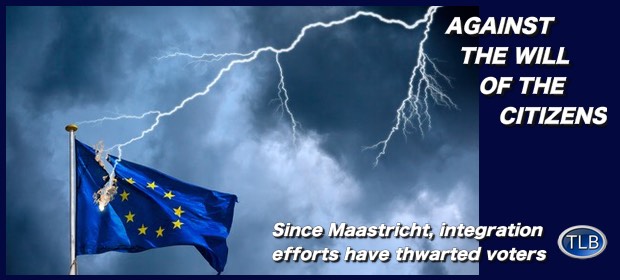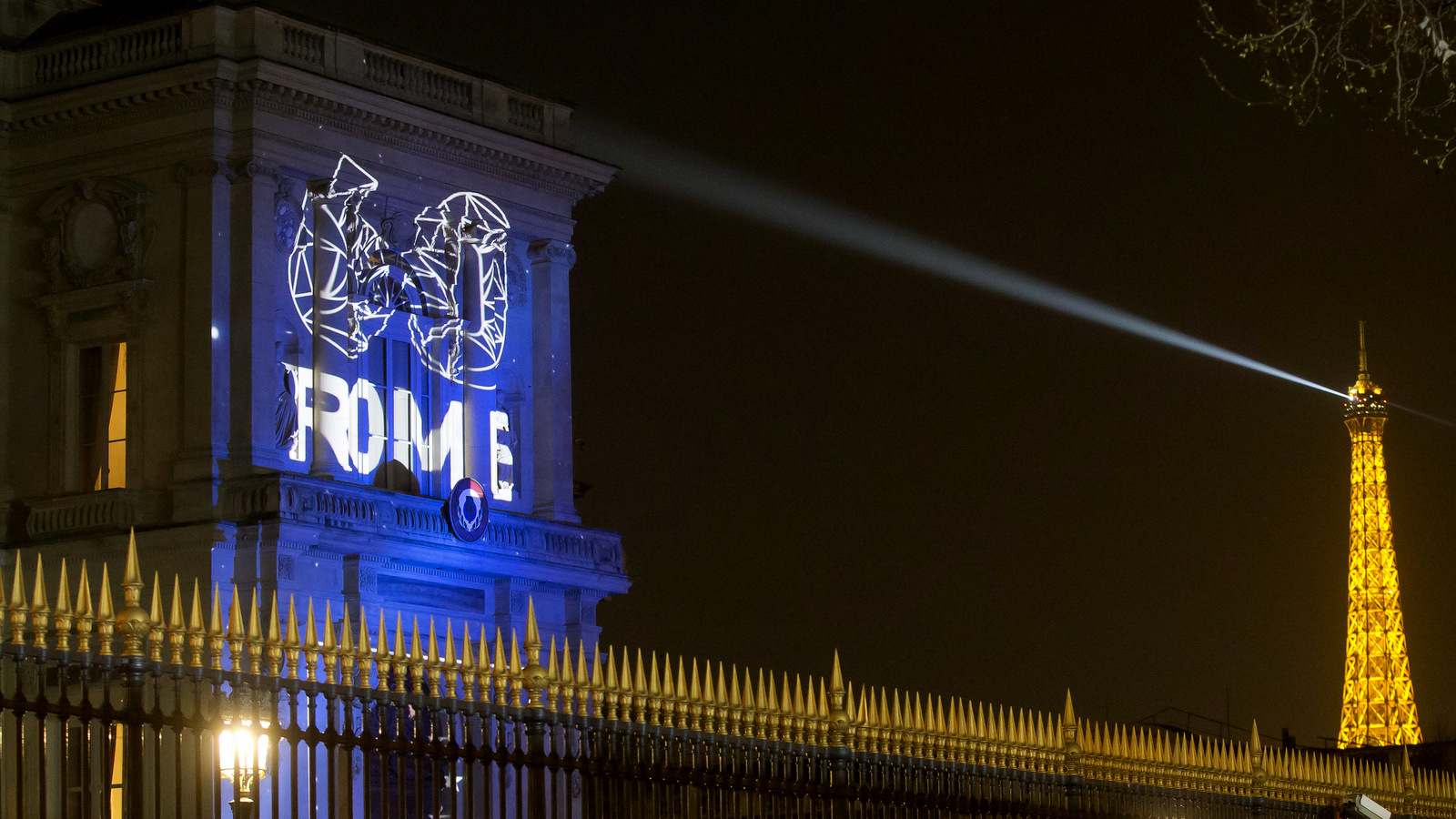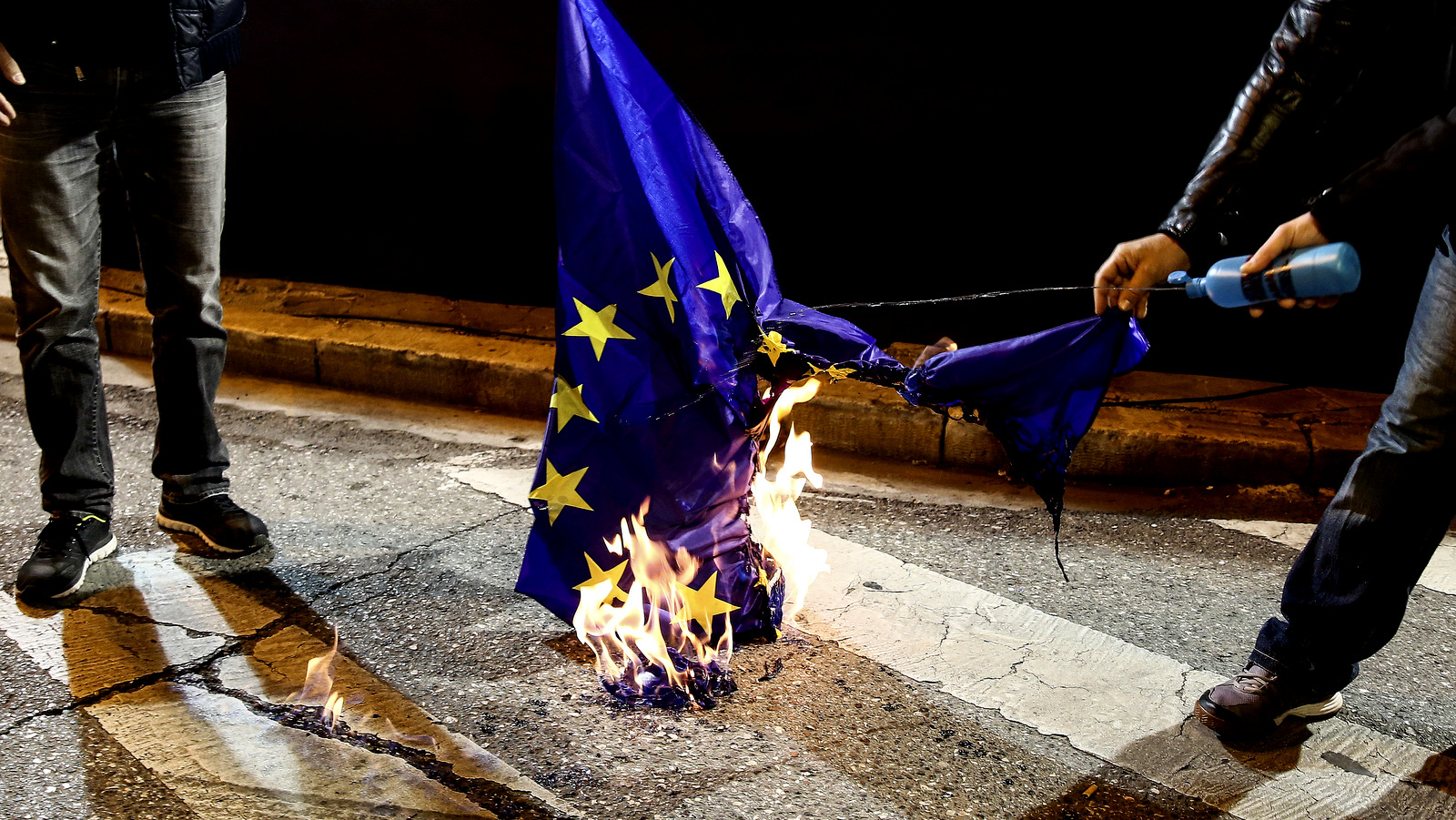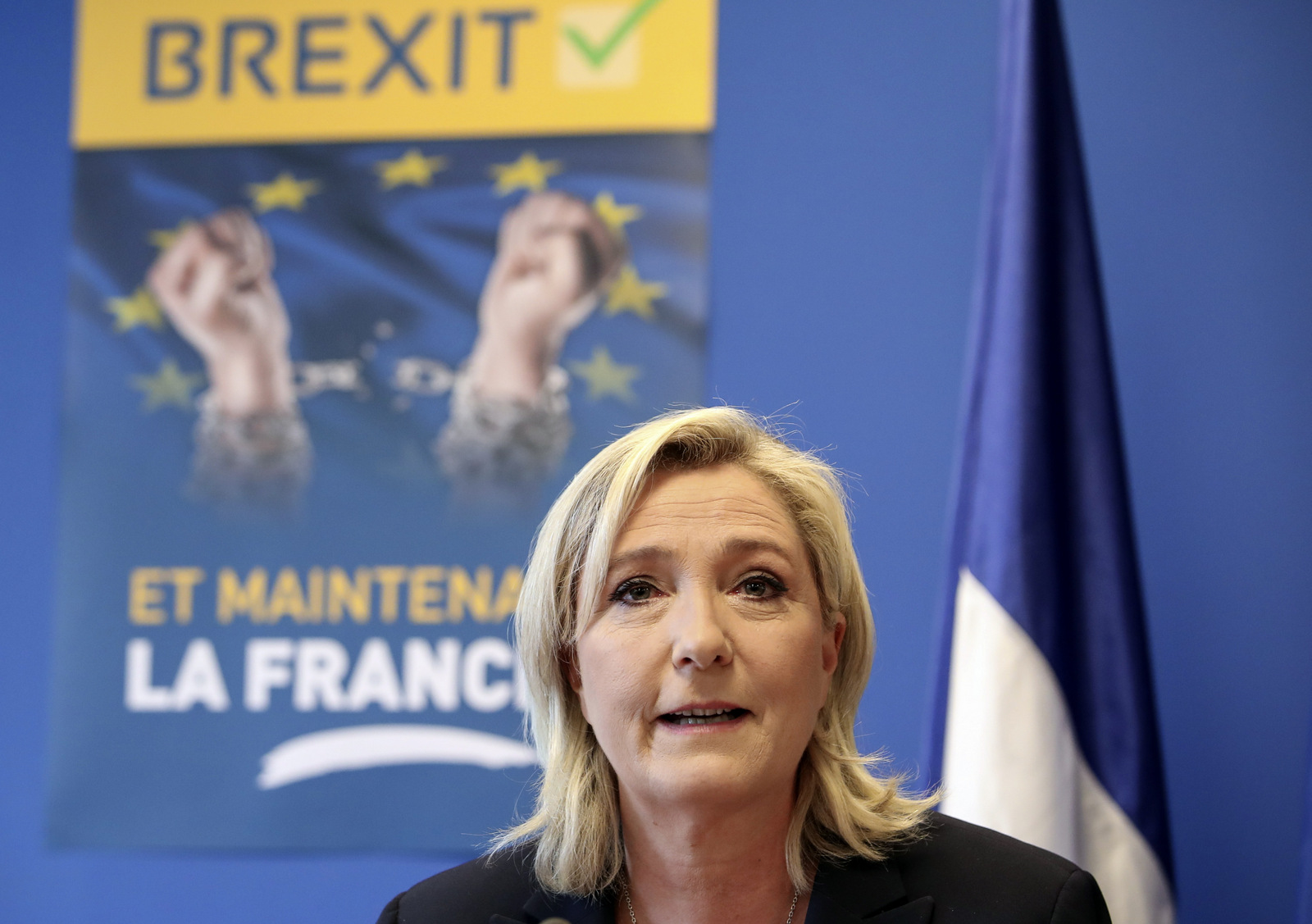
The European Union’s Democracy Dilemma
If the only way to create a United States of Europe is to avoid consulting the people, why should the goal even be pursued?
ANDREW SPANNAUS
A sigh of relief was heard across Europe on Sunday night, as far-right candidate Marine Le Pen was beaten soundly in the French presidential runoff election, losing to centrist Emmanuel Macron 66 percent to 34 percent.
Le Pen had come in a close second to Macron in the first round of voting two weeks earlier, less than three points back (24 percent to 21.3 percent) in a crowded field that also included conservative Francois Fillon (20 percent) and leftist Jean-Luc Mélenchon (19.6 percent) among the top vote-getters.
Le Pen capitalized on the anti-establishment fervor sweeping the Western world to challenge for the top spot with a strong critique of financial globalization and the European Union (E.U.), mixed in with her party’s historical message of nationalism with racist overtones. Together with Mélenchon, the first round saw over 40 percent of the votes go to these “extreme” candidates, indicating the presence of widespread dissatisfaction with the political élites and their current economic and social policies.
The fear among European political institutions was that Le Pen’s anti-E.U. message would either carry her to the presidency or at least call into question France’s adherence to the institutions that have transferred large chunks of sovereignty from the single nations of Europe to a supranational bureaucracy.
Macron, on the other hand, defended the E.U. despite recognizing widespread disaffection regarding European institutions. He stressed the need to restore confidence in the Union, while adopting a peculiar argument about how Europe is actually the best instrument to defend the sovereignty of its member states.
His decisive victory in the runoff election, although somewhat tainted by record levels of abstention and blank or spoiled ballots, is causing optimism among pro-E.U. politicians, who are now able to counter the populist narrative with the democratic election of a pro-European president of France.
This argument merits considerable skepticism, as the assumption of majority support for the supranational E.U. institutions based on the election of a national leader is quite a leap. Indeed the issue of the democratic legitimacy of the E.U. itself is a thorny one, due to electoral failures and questionable tactics used to ensure the construction of unpopular international bodies that impose profound changes in economic and social policies among the Union’s member states.
Why the E.U.

The French foreign ministry building is lit up to celebrate the 60th anniversary of the Treaties of Rome in Paris, France, Friday, March 24, 2017. March 25th 2017 marks the 60th anniversary of the Treaties of Rome that effectively gave birth to the European Union. (AP/Michel Euler)
The origins of the E.U. go back to the 1950s. First there was the creation of the European Coal and Steel Community, an agreement for regulation of industrial production among six countries: France, West Germany, Italy, Belgium, the Netherlands and Luxembourg. Then came the Rome Treaties of 1957, which gave birth to the European Economic Community and the European Atomic Energy Community (Euratom).
The stated goal, encouraged by the United States in the context of the Cold War, was to “lay the foundations of an ever closer union among the peoples of Europe,” principally through economic cooperation based on the European “common market.” Over the subsequent decades the communities expanded to include 12 countries, an alliance of independent nation-states seeking increasing cooperation at the European level.
A phase shift began in the 1990s. The Maastricht Treaty of 1992 transformed the communities into the European Union, and defined a path that would lead to the single currency, the Euro. Other countries were also invited to join, gradually bringing the total up to 28 Member States by 2013, although only 19 of them would participate in the monetary union. The new model of cooperation was that defined in 1992, with the goal of moving towards a single super-state based not only on economic union, but political union as well.
This goal immediately ran into a major obstacle: the popular will. Only three countries held referendums on the Maastricht Treaty: Ireland, France and Denmark. The first two were successful, but the population of Denmark voted against it. This would have been the death knell for the Treaty, so a decision was made to hold a second referendum, in which Maastricht was subsequently approved. The other participating countries merely had their Parliaments vote up the Treaty, so as to avoid the risk of a popular rejection.
The next big step in economic policy was called the Stability and Growth Pact, implementing stricter budget rules based on specific deficit/GDP and debt/GDP parameters. For years the Pact was the key instrument for imposing continuous austerity on the Member States. Here there was no attempt at obtaining approval even of the Parliaments, as the Stability and Growth Pact was enacted simply as an E.U. Regulation in 1997.
Risking Legitimacy

Supporters of the communist-affiliated union PAME burn a EU flag during an anti-austerity rally in Athens, Wednesday, Mar. 1, 2017. (AP/Yorgos Karahalis)
As economic and monetary policy became increasingly centralized and rigid, the risk of a lack of political legitimacy was evident. The response was to attempt the construction of a strong European government, by drawing up an E.U. Constitution.
Given the direct effect on sovereignty, some countries held referenda on the text, starting with France and the Netherlands. In 2005, the French rejected the proposed constitution 55 percent to 45 percent, just a few days before the Dutch did the same, with an even higher margin of 62 percent to 38 percent.
The idea of creating a “United States of Europe” had been stopped in its tracks, rejected by the democratic vote of two important Member States. A normal response would have been to recognize that the peoples of Europe weren’t ready for full integration, but the institutions decided to go in a different direction.
Since a Constitution wouldn’t pass, they began drawing up a new treaty with essentially the same goal; the advantage was that a treaty could simply be passed by the Parliaments, avoiding putting it before the voters.
The result was the Lisbon Treaty, another step forward in consolidating the supranational power of the structures of the European Union. The path to ratification met only one serious obstacle, the requirement established by the Irish Supreme Court of holding a referendum on any treaties that go beyond the “essential scope or objectives” of existing E.U. documents. In 2008 the Irish rejected the Lisbon Treaty, throwing a wrench into this plan as well. Never fear, the Irish government called a second referendum a year later, and through a number of carrots and sticks the population was induced to pass it the second time.
The Lisbon Treaty entered in force in 2009, and remains the framework for the new form of the European Union, strengthening institutions, which from the 1990s on have been able to dictate economic policy to the member governments, thus keeping everyone in line with the policy orientation of the transatlantic élites.
Finding a Way

French far-right leader Marine Le Pen speaks during a press conference at the National Front party headquarters in Nanterre, outside Paris, Friday, June 24, 2016. (AP/Kamil Zihnioglu)
The case of Ireland shows the preferred method of European institutions for consolidating E.U. authority. First a goal is set, and then the method is chosen to meet it. If the most influential European politicians agree, the consent of the governed becomes merely an annoying detail to get around however possible.
In subsequent years additional treaties were passed with practically no public debate at all. One of the most important is the European Fiscal Compact (2012), an even stricter version of the Stability and Growth Pact, which obliges Member States to balance their budgets and reduce their debt.
To get a flavor for the ideology, consider the provision of the “debt brake”: any country that fails to reduce its debt-to-GDP ratio to below 60 percent is required to cut the debt by 5 percent each year for 20 straight years, a level of austerity that in some countries would require massive cuts in essential services.
The preferred method for moving forward with European integration raises serious questions. If the only way to create a United States of Europe is to avoid consulting the people, why should the goal even be pursued? The response often heard is based on circular reasoning: Europe needs to be built in order to meet the needs of the people, then the people will understand why it’s so important.
In the elections held so far this year in European countries, the anti-E.U. candidates have increased their votes considerably, but have not made it into the halls of power. For most of the European political class this is a relief, as they feared an imitation effect after the anti-establishment Brexit vote in June 2016 and the election of Donald Trump in the U.S. last November.
It would be a mistake, however, to consider the rejection of far-right candidates an endorsement of greater integration of European nations through supranational institutions, that to date have proved not only unable to deal with the economic effects of globalization, but also impervious to the democratic opinions of European citizens.
************
ER recommends other articles by MintPress News, and Consortium News where this article first appeared
About the author
Andrew Spannaus is a freelance journalist and strategic analyst based in Milan, Italy. He is the founder of Transatlantico.info, that provides news, analysis and consulting to Italian institutions and businesses. His book on the U.S. elections Perchè vince Trump (Why Trump is Winning) was published in June 2016. Spannaus contributes to multiple news services including Constortium News, where this editorial first appeared.




